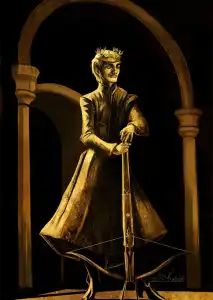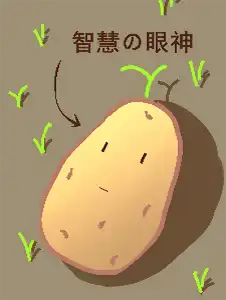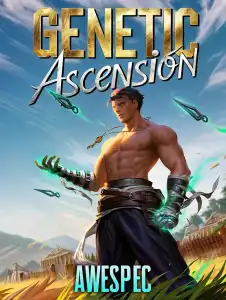Chapter 219: Artificial Organs (8) |
"How many people are in the camp here?" Young-Joon asked.
"About 30,000 people,” the facility manager replied.
"30 000 people… If we gather a lot of medical staff and work diligently, we should be able to finish collecting blood samples today. You can send them to the affiliated laboratory at Xinjiang University Hospital."
"Oh, wait."
The manager suddenly interrupted him.
"Come to think of it, it's a little more than 30 000…"
"How many are there?"
"Well, um… Anyway, we can’t finish today.”
"Then how long will it take?"
"Alright. You can send it to the place I just told you, and I'll test the blood samples, drinking water, and any common items that might be contaminated for the virus."
Liu returned to his car and drove back to the Institute of Biomedical Research, which was affiliated with Xinjiang University Hospital.
* * *
“It’s going to be quite dangerous from here, Supervisor Kim,” Young-Joon said to Kim Chul-Kwon at the hotel. “Although I’m going to leave it to the experts instead of doing it myself, I still don’t know how it’s going to play out. I think it’s best for you to return to Korea.”
“I cannot.”
“Worst case scenario, we might get arrested by the police. I know one of their weaknesses, so they won’t be able to do anything to us even if that happens, but it’s still dangerous. You should go back to Korea.”
“I cannot,” Kim Chul-Kwon refused again, bluntly.
“I am ordering you as your superior. Go back.”
“Then fire me. I’ll just follow and guard you as a private individual.”
“...:
Young-Joon was dumbfounded. Kim Chul-Kwon slightly bent down and whispered to him.
“Doctor Ryu, I have an idea of what’s going on here, I’m not stupid. You were suddenly summoned into the Hall of Diligence where the President lives, you suddenly came to Xinjiang to investigate organ transplants, and today, you came to see a camp that looks like a prison. Plus, you’re being followed by an interpreter who clearly looks like an intelligence agent,” Kim Chul-Kwon said. “I know that it’s dangerous, and that’s why I can’t go back by myself, you know? I mean, your safety won’t be secure because some private security is with you, but I can’t leave. This is my job.”
“Hm…”
“Do you remember the first day I worked on your security team when we walked past Gwanghwamun after you were discharged from the hospital? A lot of people were rallying to put the person who tried to hurt you in jail because there are seven hundred thousand patients with rare diseases and a million cancer patients in Korea alone,” Kim Chul-Kwon said. “You are a beacon in the medical world right now, that’s what I’ve concluded from watching from the sidelines. The world is very sick, and you have the ability to heal it. You should be more careful of your life, even if it means sacrificing someone like me by putting them in front of you like a shield.”
“...”
“Speaking of which, how dangerous are the things we’re about to do?”
“We’ll only be doing research here. The CIA will do anything beyond that.”
“The CIA?”
“They were the first to ask us to research this.”
Ding!
An email arrived on Young-Joon’s cellphone. It was from Yanag Gunyu. It was a report of Guangdong’s own investigation of the Blood Tyrant Agency. It also contained additional information of the people who had gone missing in Guangdong. Yang Gunyu suspected that this might be connected to that organization and finding Lee Qinqin, the missing person.
“Alright.”
Young-Joon nodded.
“We got a weapon.”
* * *
The CIA had requested Young-Joon to analyze the identity of the virus through Agent Whittaker. They also knew that Young-Joon had traveled from Beijing to Xinjiang Uygur after stopping at the Hall of Diligence. Young-Joon must have gone there because he felt something serious was happening. The CIA was thinking of contacting him if Young-Joon didn’t reach out first, but Young-Joon beat them to it.
—This is CIA Agent Whittacker.
Young-Joon called the CIA headquarters and asked for Whittaker.
“This is Ryu Young-Joon. I’ve determined the identity of the virus that Doctor Ref sent to Xinjiang Uygur.”
—What is it?
“It’s a virus that can cause subacute necrotizing encephalomyelitis. It does not cause illness in healthy adults, but when there is organ transplantation, the disease develops in the recipient’s body.”
—... Subacute… What?
“I will report the detailed findings later. But first, I’d like to pass on some important information about Xinjiang to you. Can you give me an email?”
—I will give you the CIA’s temporary email. I’ll text it to you.
Whittaker hung up and sent Young-Joon a text. Even as he was sending it, he was wondering what Young-Joon was going to send. The CIA, the world’s best spy agency, had spent two weeks in Xinjiang and gotten absolutely nothing. What kind of secret information could someone who had just arrived in Xinjiang be able to send them?
Ding!
Whittaker received an email. His eyes widened as he read it. It was a drawing of the basement of Xinjiang University Hospital. Contrary to prior information that said it only had five basement floors, the blueprint showed three more basement floors and a huge facility as well. It also showed where the secret elevator was hidden, how many guards there were on the way down, what level of security clearance one needed, and the fact that iris and fingerprint recognition were required starting from the sixth basement floor.
“What…”
That wasn’t it. It detailed the layout of the Xinjiang Uygur internment camps and the three million Uygurs imprisoned there. But there was one piece of information that was even more serious: illegal organ harvesting. The sixth to eight floors of the basement were equipped with donor living quarters and operating rooms. It was odd that organ donors would need a place to live because someone donating an organ like a heart would be in the intensive care unit until theory died.
The information didn’t stop there. There were records of investigation into the Blood Tyrant Agency, the blood-selling agency, and the fact that their blood could be tested for histocompatibility. There was also a statement by Yang Gunyu, the governor of Guangdong, that poor people living on blood money often disappear in the middle of the night without anyone noticing.
“This is… Sounds like some urban legend or something…”
Whittaker wouldn’t have believed it at all if it weren’t for the statistics and the fact that it was from the Guangdong Provincial Administration. That was how chilling the picture these data were painting.
“Why are there so many missing people from these blood villages…”
Whittaker let out a deep sigh. He pulled out his phone and called his fellow CIA agent, Robert.
* * *
Anthony, an editor of Nature, was a bit taken aback by the two CIA agents who showed up in front of his door in the middle of the night. They were Whittaker and Robert; he had already met Robert once. “I told you before that this is a dangerous place and you should return home, but you haven’t,” Robert said.
“I… It’s my choice,” Anthony replied nervously.
“This is a place where plainclothes policemen keep an eye on foreigners, like the Gestapo did in the old days. Even people like us who are skilled at this kind of thing could be in danger. You’re not even a war correspondent, just an academic journal editor. This is not something that you should be investigating,” Robert said. “This is not a suggestion, this is a warning. It could be trouble if you’re taken hostage. Go home. Many foreign journalists have already gone back.”
“... I don’t want to.”
“You don’t want to?”
“Nature has published a lot of papers analyzing medical data from organ transplant patients in China over the years, many of which I’ve edited because I did my degree in organ transplantation and immune response,” Anthony said. “I’m not a scientist anymore, but I’m still working in the same field to advance the medical community. I feel responsible for this situation!”
“...”
“I’m a fan of Doctor Ryu, but not just because he has a lot of brilliant research achievements. It’s because he’s come this far without dodging or trying to save himself when confronted with unethical behavior. I envy him for that. It’s time for the scientific community to change, and I will be like him from now on.”
“Hm…”
Whittaker gave Robert a clever smile and glanced at Robert.
“You could die,” Robert said to Anthony.
“... I’m still going to stay.”
“Alright.”
Whittaker put down his stuff and sat beside Anthony.
“We need someone who has in-depth knowledge about biology or organ transplants to carry out our operation. Can you help us?”
“What?”
“We’ll let you uncover the top-secret information that China is hiding in Xinjiang right now.”
“What are you trying to do?”
“We’re going to infiltrate the secret operating rooms over there. Will you help us? Like I said, it could be life-threatening.”
“You’re going to infiltrate a secret operating room?”
Anthony’s eyes widened.
“Yes.”
“Um… I’m investigating this out of a sense of duty, but why is the CIA…”
“Haha. These things are a battle of power between countries. We’ve had many of these with a country like China,” Whittaker said. “The Xinjiang region is culturally and ethnically very different from mainland China. And yet, the reason why the Chinese government has prevented the Muslims in that region from becoming independent is because of the underground resources in Xinjiang.”
“Underground resources?” Anthony asked.
“The natural gas and coal reserves there are forty percent of the entire amount in China. They have the largest oil reserve in China as well,” Robert added. “The United States is going to publicize this political scandal in the international community and push for Xinjiang’s independence. Then, the U.S. influence in the region will be huge.”
“...”
“I could have thrown in all sorts of other causes, Doctor Anthony, but I’m just being honest with you. But it’s not that difficult. It’s just about rescuing and bringing justice to those poor citizens who are being kidnapped and harvested for their organs.
Anthony hesitated for a moment, then nodded with a determined expression.
“Okay, I’ll go.”
“Good. Take a look at this.”
Whittaker laid the materials Young-Joon had sent him out on the table. Anthony’s eyes widened at the incredible information in front of him.
“How did you get… Who gave you this information?” Anthony asked, stuttering because of the shock.
“The source is a secret, which is for your own good. But don’t worry, it’s a very reliable source. And now, we’re going to start gathering evidence,” Whittaker said.
“Evidence?”
“Yes. Because even if we publish it right now and pressure the Chinese government, all they have to do is dismiss it as an urban legend,” Robert said. “We have to raid the donor’s living quarters down here in the basement. They have a ledger with the operations, so we’re going to get that and bring those people over to Kyrgyzstan. Then, all we have to do is take the prepared plan to the United States.”
“I-Is that possible?”
“We’ve secured an escape route, so don’t worry. If you do well, we should be able to disguise ourselves as scientists and get the people out without armed conflict.”
* * *
Young-Joon’s virus research was smooth sailing. Three trucks from the camp in Xinjiang Uygur arrived at the research institute every day. The trucks contained dozens of large boxes, which contained one thousand blood samples each.
However, Young-Joon didn’t analyze them all. He randomly selected two thousand samples by date and conducted drop-seq on them. All of them were infected with Doctor Ref’s virus.
In the downtime, he was doing another experiment. He was trying to see what happened when an organ infected with this virus was transplanted. He created a cardiac organoid and checked the progression of subacute necrotizing encephalomyelitis in an animal model. He successfully reproduced what happened to Chen Shui, the president of China, in ten beagles. This was biological experimental evidence—proof that high-ranking Chinese officials who were dying did receive organ transplants from Xinjiang Uygur camps.
However, he needed proof that they were illegal transplants, which the CIA would provide. Young-Joon was going to release the data when they blew it up. He stalled for time, accepting blood from the internment camps even though the experiment was almost over.
—They’re in.
Rosaline alerted Young-Joon.
It was eleven o’clock at night, and Robert, Whittaker, and Anthony appeared in the underground parking lot of the research institute. They didn’t have a problem getting into the parking lot because it was open to the public, but getting down to the sixth floor involved a lot of security.
—Do you think they’ll do a good job?
Rosaline seemed a little doubtful.
‘Whittaker said he’s confident. There’s no agent in the CIA who won’t be able to get into the basement when they have the complete blueprint and security plans.’
Young-Joon assured Rosaline.
‘Let’s trust them.’

















